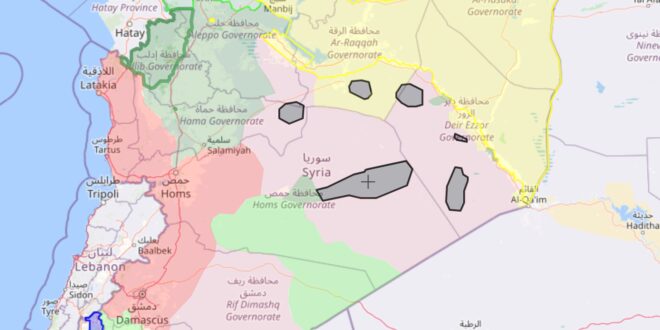As the opposition finds itself only 26 kilometres south of Damascus, diplomatic sources told Syria TV that Arab and Gulf states have offered Assad an opportunity to leave the country.
The military and political pressures on Syrian regime leader Bashar al-Assad are escalating, amid declining public support from his traditional allies, Russia and Iran. Reports indicate that Moscow and Tehran are now more inclined to prioritize their own interests in Syria over their unwavering support for Assad, leaving him to face a highly complex political and military reality.
There are rumours that Asma al-Assad and her children have left the country, while Iran has stated that Bashar al-Assad’s fate remains uncertain.
Diplomatic sources told Syria TV that Arab and Gulf states have offered Assad an opportunity to leave the country until the situation on the ground in Syria becomes clearer.
“Assad failed to engage with his people”
Lebanese sources informed Syria TV that Lebanese officials have told Hezbollah that the United States, Turkey, and Arab countries are seriously supporting efforts to overthrow the Syrian regime and remove Bashar al-Assad from power.
The Russian news agency TASS reported on Friday that Russian Foreign Ministry spokesperson Maria Zakharova stated that the foreign ministers of Russia, Turkey, and Iran would hold special talks regarding Syria in Qatar today, Saturday.
Qatar’s Prime Minister Sheikh Mohammed bin Abdulrahman bin Jassim Al Thani said on Saturday that Bashar al-Assad has failed to engage with his people and address key issues, such as the return of refugees, during the relative calm in the ongoing war in the country.
Speaking at the Doha Forum, Sheikh Mohammed, who also serves as Qatar’s foreign minister, said Assad “did not seize this opportunity to begin reconnecting with his people or restoring relations. We have seen no serious movement regarding the return of refugees or reconciliation with his people.”
The opposition at the gate of Damascus
On the ground, southern Syria is witnessing major transformations. Opposition factions and anti-regime groups have succeeded in taking control of vast areas in Daraa, Suweida, and Quneitra.
These factions have captured strategically important military sites and security headquarters that symbolized the regime’s dominance in the region, raising doubts about its ability to regain control. The opposition notably seized Zakia, only 26 kilometres south of Damascus. The “Fatah Damascus” Operations Room announced that it had taken control of several regime positions west of Damascus. The Operations Room stated, “Our next target is Sa’sa’ to free our detainees held at the Military Security Branch there. The regime is collapsing in the areas of Zakia and Khan al-Sheih, and our forces are preparing to enter them.” It added, “The regime has begun withdrawing its checkpoints from Artouz, and we will soon reach the gates of Damascus.” Reporters from Syria TV confirmed a broad withdrawal of Syrian regime forces from various positions in western rural Damascus.
Amidst all this, Hezbollah has sent 2,000 fighters to the Syria-Lebanon border area, according to the AFP News Agency. Meanwhile, military preparations by opposition forces are intensifying in central Syria, where the “Military Operations Directorate” aims to advance toward Homs after successfully capturing the centers of Aleppo and Hama and expelling regime forces entirely from Idlib province, delivering a severe blow to the regime’s military capabilities.
Politically, these battlefield setbacks coincide with growing debates over Assad’s future. Pressing questions are emerging about his ability to remain in power given the weakened support from his allies. Recent Russian and Iranian actions suggest potential shifts in alliances, as strategic interests appear to outweigh previous commitments to the Syrian regime.
In this context, Bashar al-Assad finds himself increasingly cornered both domestically and internationally. With his political and military options shrinking at an unprecedented pace and reports indicating waning confidence in his allies, speculation grows that the regime is nearing a historic turning point that could determine its fate in the coming days.
 Eurasia Press & News
Eurasia Press & News



